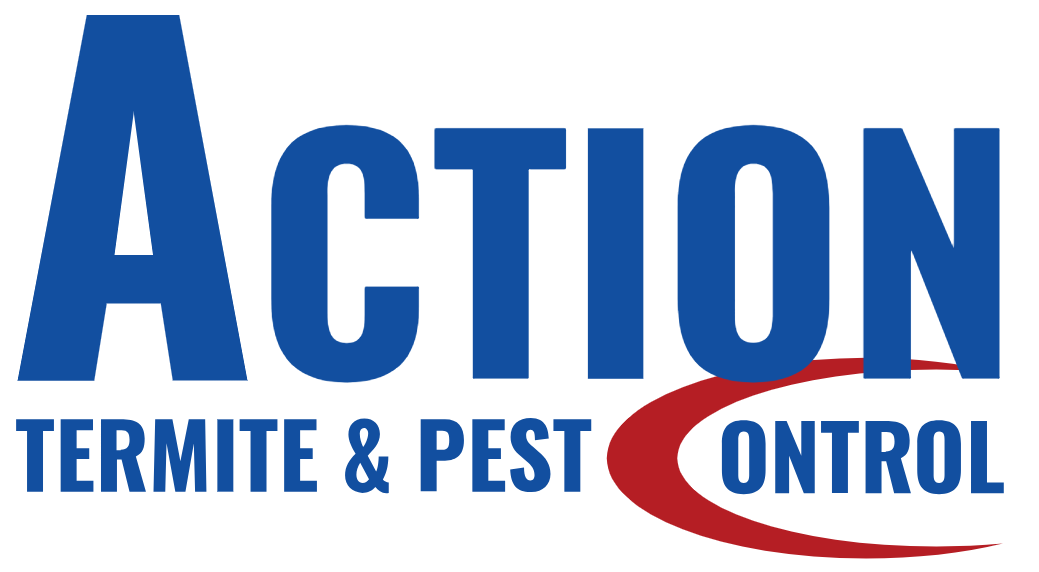Are you considering selling your pest control business? The process of selling a company requires careful preparation to ensure a smooth and successful sale. From strategizing the sale to enhancing the value of your business, there are several key steps to take before listing your pest control company for acquisition.
In this section, we will explore the essential considerations involved in preparing your pest control business for sale. Whether you’re looking to retire, pursue new opportunities, or change personal circumstances, understanding your motivations is crucial. We will also discuss the importance of early consideration for a future sale and reflect on your long-term business objectives.
Strategizing the sale is another crucial aspect to consider. We will delve into the steps involved in getting your pest control company ready for acquisition. From organizing financial records to evaluating your operational processes, we will provide insights to attract potential buyers and ensure a smooth transition.
Lastly, we will discuss the valuation techniques that can help maximize the worth of your pest control business. Understanding the valuation methods commonly used in the industry and the factors that influence valuation multiples will be key in pricing your business accurately.
By following the insights and strategies discussed in this article, you will be well-prepared to navigate the journey of selling your pest control company. Let’s dive in and explore the key steps to prepare your pest control business for sale.
Key Takeaways:
- Understanding your motivations behind selling your pest control business is essential for proper planning.
- Reflect on your long-term business objectives and consider the timing of a sale to maximize the value of your business.
- Strategize the sale process by organizing financial records and evaluating operational processes.
- Engage an experienced M&A advisor with expertise in the pest control industry for guidance.
- Understand the valuation techniques and factors that influence the worth of your pest control business.
Understanding the Motivation Behind Selling Your Pest Control Business
Before diving into the process of selling your pest control business, it’s essential to understand your motivation behind the decision. Reflecting on your long-term business objectives and considering the timing of a sale is crucial. Early consideration allows for proper planning and maximizing the value of your business. Pest control operators may have varying reasons for selling, such as:
- Retirement: If you are ready to retire and transition into the next phase of your life, selling your pest control business can provide financial security and peace of mind.
- Pursuing new opportunities: Selling your business may be driven by a desire to explore other ventures or industries. Whether you have new business ideas or want to embrace a different career path, selling your pest control business can fund your next endeavor.
- Changing personal circumstances: Life events such as relocation, health issues, or family obligations can influence your decision to sell. Understanding how these personal circumstances impact your long-term business objectives is essential.
By identifying your motivation for selling, you can align your actions and strategies towards achieving your desired outcome. It will also help you convey the value of your pest control business to potential buyers, ensuring a successful and mutually beneficial sale process.
Strategizing the Sale: Getting Your Pest Control Company Ready for Acquisition
Once you have made the decision to sell your pest control business, it’s important to strategize the sale process. To ensure a smooth transition and attract potential buyers, there are several key strategies you should consider:
- Organize Financial Records: Thoroughly organize your financial records, including profit and loss statements, tax returns, and balance sheets. This will provide potential buyers with a clear understanding of your company’s financial health.
- Evaluate Operational Processes: Assess your operational processes to identify areas for improvement. Streamlining workflows, improving efficiency, and implementing best practices will make your business more attractive to potential buyers.
- Enhance Maintenance and Equipment Records: Keep detailed records of equipment maintenance and repairs, demonstrating the proper care and upkeep of your pest control equipment. This will instill confidence in potential buyers and showcase the value of your business.
- Assess Staffing and Human Resources: Evaluate your staffing needs and address any challenges or gaps in your workforce. Ensure that you have a capable and well-trained team in place to facilitate a seamless transition for the new owner.
- Improve Customer Relationships: Nurture strong relationships with your existing customer base. Providing exceptional service and maintaining open lines of communication will enhance the perceived value of your business in the eyes of potential buyers.
- Consider Market and Industry Trends: Stay informed about market and industry trends to position your business competitively. Understanding the current market conditions and tailoring your strategies accordingly will make your pest control company more attractive to buyers.
To complement these strategies, it is also recommended to consult with a business broker or mergers and acquisitions advisor who specializes in the pest control industry. Their expertise can provide valuable insights and guidance as you navigate the sale process.
How to Prepare Your Pest Control Company for Acquisition
When it comes to preparing your pest control company for acquisition, there are crucial steps you need to follow. One of the key factors that can significantly impact the value of your business is selecting the right time and approach for preparation. Timing is everything when it comes to attracting potential buyers and maximizing the sale price of your business.
Engaging an experienced M&A advisor with expertise specifically in the pest control industry is another essential step. An M&A advisor will provide you with valuable guidance throughout the entire acquisition process. They have the knowledge and insights necessary to navigate the complexities of the pest control sector, ensuring a smooth and successful transition.
However, it’s important to balance objectivity with emotional attachments during the valuation process. Selling a business can be an emotional experience, especially if you’ve invested a significant amount of time and effort into building it. An objective assessment of your business’s worth will ensure that you receive an accurate valuation and avoid any potential pitfalls during negotiations.
To visualize these steps, imagine a pest control business owner contemplating the sale of their company. They carefully consider the timing for preparation and engage an experienced M&A advisor with pest control industry expertise. This enables them to present their business in the best possible light and secure the optimal acquisition deal.
This image perfectly illustrates the importance of thorough preparation and the role of an M&A advisor in guiding a pest control business owner through the valuation process.
Valuation Techniques: Maximizing Your Pest Control Business’s Worth
To maximize the worth of your pest control business, it’s crucial to understand different valuation techniques. In this section, we will explore two commonly used methods: SDE valuation and EBITDA valuation. Additionally, we’ll discuss the various factors that influence valuation multiples and why revenue-based valuation may not provide an accurate assessment of your business’s true value.
Understanding SDE and EBITDA Valuation Methods
When valuing a pest control business, two popular methods are SDE (Seller’s Discretionary Earnings) valuation and EBITDA (Earnings Before Interest, Taxes, Depreciation, and Amortization) valuation. The SDE valuation method considers the financial performance of the business, including the owner’s salary, personal expenses, and non-recurring costs. EBITDA valuation, on the other hand, focuses on the earnings generated before considering interest, taxes, depreciation, and amortization expenses.
Both valuation methods offer insights into the financial health and profitability of your pest control business. By understanding these techniques, you can gain a more accurate understanding of your company’s worth in the market.
Factors Influencing Valuation Multiples for Your Business
Several factors influence the valuation multiples assigned to a pest control business. These factors include:
- Financial Performance: Prospective buyers consider the historical and projected financial performance of your business, including revenue growth, profit margins, and cash flow stability.
- Market Conditions: The overall economic conditions and market dynamics within the pest control industry can impact the valuation of your business. Factors such as competition levels, industry trends, and customer demand influence buyer interest and willingness to pay a premium.
- Growth Potential: Buyers look for opportunities to grow the business further. Factors such as geographic expansion, diversification of services, or the introduction of innovative technology can contribute to increased valuation multiples.
- Customer Base: A strong and diverse customer base can enhance the value of your pest control business. Long-term contracts, recurring revenue, and customer loyalty demonstrate stability and generate buyer confidence.
These factors are considered by potential buyers when assessing the value of your business. Understanding their importance allows you to strategically position your company to attract buyers and negotiate a favorable sale price.
Why Revenue-Based Valuation Might Mislead Pest Control Business Owners
While revenue-based valuation is a common approach in certain industries, it may not provide an accurate representation of a pest control business’s worth. Revenue alone does not reflect the profitability or long-term sustainability of the company. Other financial metrics, such as profit margins and cash flow, need to be considered.
Focusing solely on revenue can lead pest control business owners to overestimate their business’s value or overlook potential areas for improvement that could enhance profitability. By understanding the limitations of revenue-based valuation, you can take a more comprehensive approach and ensure a more accurate assessment of your business’s true worth.
Key Enhancements to Boost the Attractiveness of Your Pest Control Business
Enhancing key aspects of your pest control business can significantly boost its attractiveness to potential buyers. By implementing the following key enhancements, you can increase the value of your business and attract more buyers.
1. Improve Customer Contracts and Reputation
Enhance the value of your pest control business by focusing on customer satisfaction. Review and update your customer contracts to ensure they are fair, comprehensive, and transparent. Proactively address customer concerns and deliver exceptional service to build a strong reputation in the industry. Positive customer testimonials and online reviews can greatly enhance the attractiveness of your business to potential buyers.
2. Incorporate Eco-Friendly Pest Control Practices
Today, eco-friendly practices are highly valued by both consumers and businesses. Consider integrating environmentally friendly pest control methods and products into your operations. Highlighting your commitment to sustainability and responsible pest control practices can make your business more appealing to buyers who prioritize environmental solutions.
3. Leverage Technology for Efficiency and Innovation
Embrace technology to streamline your pest control operations and demonstrate your forward-thinking approach. Implement software systems for efficient scheduling, inventory management, and customer relationship management. Explore innovative solutions such as remote monitoring, IoT-enabled devices, and digital reporting tools to showcase your business’s technological prowess and attract tech-savvy buyers.
4. Provide Comprehensive Training and Certification Programs
Invest in the professional development of your employees and promote a culture of continuous learning. Offer comprehensive training programs and certifications that demonstrate your team’s expertise and commitment to excellence. A well-trained and knowledgeable workforce adds value to your business and increases its attractiveness to potential buyers.
Tax Considerations Before the Sale of Your Pest Control Company
Selling a pest control company involves important tax considerations that should not be overlooked. Understanding the tax implications associated with different corporate structures is critical to making informed decisions and maximizing your financial outcome. To navigate this complex landscape, it is highly recommended to consult with financial experts who specialize in tax advice, such as a CFO or CPA.
Anticipating Tax Implications for Different Corporate Structures
The tax implications of selling a pest control company vary depending on the corporate structure under which the business operates. For example, if your pest control company is structured as a sole proprietorship or partnership, the sale may result in different tax liabilities compared to selling a business organized as an S corporation or a C corporation. Anticipating these potential tax implications is crucial for effective planning and optimizing your financial outcome.
Consulting with Financial Experts on Potential Tax Liabilities
To navigate the complexities of tax implications when selling a pest control company, it is highly advisable to consult with financial experts who have in-depth knowledge and experience in this specific area. By working with a CFO or CPA, you can gain valuable advice on mitigating potential tax liabilities and optimizing your financial outcome. These professionals can help you analyze your specific situation, develop tax strategies, and ensure compliance with relevant tax laws and regulations.
It is important to note that tax implications can significantly impact the proceeds you receive from selling your pest control company. Therefore, seeking professional guidance is essential in order to make informed decisions and minimize any potential tax burdens. By consulting with financial experts, you can navigate the complexities of tax laws and regulations, ultimately maximizing your financial outcome from the sale.
Conclusion
When it comes to selling your pest control business, preparation is key. By utilizing the right resources and knowledge, you can ensure a successful sale process. Take the time to carefully plan and consider every aspect of the sale, from understanding your motivations to enhancing the value of your business.
Being prepared and proactive is essential. Use the insights and strategies discussed in this article to guide you through the journey of selling your pest control company. By organizing your financial records, evaluating operational processes, and implementing key enhancements, you can attract potential buyers and maximize the value of your business.
Timing is another critical factor to consider. Plan your exit from the pest control industry with financial security in mind. By anticipating tax implications and consulting with financial experts, you will be better equipped to navigate the complex landscape.
With careful planning, strategic decision-making, and the right guidance, you can successfully sell your pest control business and embark on a new chapter with confidence.
FAQ
What are some key strategies for preparing my pest control business for sale?
Some key strategies for preparing your pest control business for sale include organizing financial records, evaluating operational processes, and enhancing key aspects of your business to increase its value and attractiveness to potential buyers.
Why is it important to understand my motivations for selling my pest control business?
Understanding your motivations for selling your pest control business is important as it helps you reflect on your long-term business objectives and consider the timing of the sale. This early consideration allows for proper planning and maximizing the value of your business.
How can I maximize the worth of my pest control business?
To maximize the worth of your pest control business, you can utilize valuation techniques such as the SDE and EBITDA methods. Additionally, factors such as financial performance, market conditions, and growth potential can influence valuation multiples. It’s important to understand these factors and enhance key aspects of your business to increase its value.
What are some key enhancements I can make to increase the value of my pest control business?
Some key enhancements that can increase the value of your pest control business include improving customer contracts and reputation, incorporating eco-friendly pest control practices, leveraging technology, and optimizing operational efficiency.
Are there any tax considerations I should be aware of before selling my pest control company?
Yes, there are tax considerations to be aware of before selling your pest control company. Different corporate structures can have varying tax implications, and it’s essential to anticipate these potential liabilities. Consulting with financial experts, such as a CFO or CPA, can provide valuable advice and guidance on navigating the tax landscape and optimizing your financial outcome.

 BED BUGS
BED BUGS SCORPIONS
SCORPIONS RODENTS
RODENTS BEES
BEES MOSQUITOS
MOSQUITOS TAP INSULATION
TAP INSULATION PEST PROTECTION PLAN
PEST PROTECTION PLAN WEEDS
WEEDS


